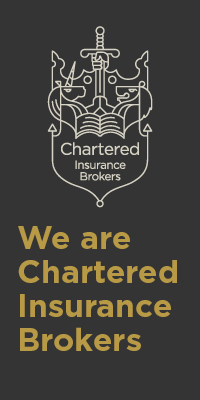Russell Scanlan MD Looks at the Rise of Economic Crime
…and Why Every UK Business Needs to Sit Up & Take Notice.
Bryan Banbury is Managing Director at Russell Scanlan, one of the UK’s largest independent Insurance Brokers and Risk Management firms. He has seen a marked increase in the number of claims relating to commercial and economic crime over the last two years. So much so that Russell Scanlan is now proactively contacting clients to warn them of this growing risk and that insurance cover is available (even arranging cover can assist a client in their risk management).
The latest Global Economic Crime Surveyi produced by PWC reports that 44% of survey respondents in the UK experienced commercial crime in 2014. The most commonly reported types of economic are asset misappropriation, bribery & corruption, cybercrime, accounting fraud and a new category for 2014, procurement fraud (22%).
It’s not just the rising number of incidents that are causing us concern but also the level of sophistication being employed by the perpetrators. Break-ins and vandalism even straightforward theft, seen as more traditional crimes, can be costly and cause some interruption in operation but hacking into IT systems, manipulation of internal order and invoicing systems, can result in catastrophic harm.
24% of UK SMEs experienced fraud in the last 12 months.ii
Too late we are fielding enquiries from clients that have found it hard to identify and protect against this form of criminal activity but as a result of online fraud, have found themselves vulnerable and facing hundreds of thousands of pounds of damage. Some of the examples that we have seen recently have been harrowing tales of business loss on a scale we haven’t encountered previously. The crimes may be varied but the common connection is that all the business owners firmly believed that it simply couldn’t happen to them.
There’s also been a big rise in the proportion of economic crime committed by employees. A rise to 41%, up from 34% in 2011, with most frauds now committed by junior staff. 54% of businesses that responded felt that the number of instances of economic crime had increased in the last two years.
The rate of economic crime in the UK is still higher than the global average and the rate across the rest of Western Europe.
We have to accept that commercial crime will continue to be more frequent and more complex and protect against it. It’s the modern day equivalent of installing a state-of-the-art intruder alarm, across every area of the business. The best advice is to call in your broker and complete a detailed risk assessment, including a thorough look at systems and software. Then take a long hard look at the cover in place and consider the potential impact of the crime. The cost of additional insurance will look insignificant in comparison.
Most Commercial Crime policies include ‘full retroactive cover’ which means that clients are insured for losses already incurred prior to cover being arranged, provided they were unaware that the crime had taken place. That alone can make the difference between a business folding and continuing to trade.
It’s not just the money it costs, it’s the time taken to investigate the crime and evaluate the loss. Often the perpetrator is a trusted member of staff and seen as key to the business. Damage to reputation, to brand and to other business relationships can also be factors. The ripple effect of commercial crime can be devastating to a business and we have to be better prepared and better protected.
i The PWC Global Economic Crime Survey 2014. 61% of respondents to the survey were senior executives.
ii The National SME Fraud Segmentation Report 2012 produced by the National Fraud Authority on behalf of the Department for Business Innovation and Skills.









